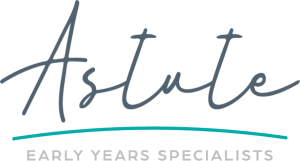The fundamental law of human beings is interdependence. A person is a person through other persons.
Desmond Tutu
I’ll always remember, when Chloe was first enrolled in our program at around 15months, that her parents had a great desire for her to be independent. They asked us not to feed her, or help her get dressed, to be ‘hands off’ (as best we could!) in learning to use the toilet and a whole other bunch of practices. I’ll admit that, that as a child of the revolutionary 70’s and 80’s where the push for women’s independence and autonomy was strong, that some of these desires struck a chord in me. If Chloe was going to grow up and be independent, strong and autonomous, then she needed to know how to take care of herself and to know her innate strengths, and when better to start that than from an early age? Chloe’s parents weren’t the only ones asking. The majority of parents then, and now, do have a strong desire for their child to be independent. And there is nothing wrong with this. But over the years, I’ve started to consider something else.
What are we losing when we strive for, particularly early on, independence over interdependence?
Over a long career in the early years, I have been witness to many parent’s frustration, joy, perseverance, and short temper when 3 year old Joey takes forever to put his shoes on, 4 year old Sarah struggles to write or recognise her name (something she needs to know now to survive in big school) or 3.8 year old Suki getting angry with herself as she tries over and over to do up her coat buttons – all in the name of ‘teaching’ self-help skills. But, what is sacrificed when we ‘teach’ self-help skills? As a colleague once said to me – “…you think they won’t be able to feed themselves or do up their buttons when they are 10, 22 or 52 years old? Why the push and pressure on the child right now?”
An essential question to consider is, “Can independence be ‘taught’? Is it a teachable act?” A quick Google search of this topic will show you many, many ways you can, and I quote, “train” your toddler to be independent. Yes. Train. Now that made me shudder…..
The years of birth to three, and even to five really, are all about the act and art of human-ing. Learning what it is to be human, to live in groups of people, to get along with these people within a myriad of social and cultural conventions, rules and norms. It is prescribed in the Early Years Learning Framework and supported in all worthy research and literature. Within a play based approach to teaching and learning, young children will be learning things all of the time.
My concern is when we start to move into the area of ‘teaching’ concepts such as self-help skills and ultimately independence, that we stray into a practice conveyed through expectation, pressure to master the task/skill, ‘hands off’ approaches, a focus on the future and not on the now and, for the child, a whole bunch of stress and anxiety (see Carol Dweck for writings on how 4 and 5yrs olds are choosing not to pursue something for fear of doing it wrong and affects on self worth).
I’ll give you an example. I was recently in the babies room and Clare* was sitting at the lunch table with 5 babies, aged between 8months and 15 months. All were seated at the table (younger ones in ‘hook on table’ seats). All children had a spoon and a bowl of mashed vegetables and sausages. Clare provided little assistance to the group, and did have some conversation with the children encouraging them to eat, but she also spoke at length with other educators about the other children in the room. Sebastian (11mths) was not having a good time. He was grumpy, his aim was off and there was food all around him. As an outsider to this experience from beginning to end, Sebastian didn’t come to the table grumpy. He was happy and smiley and eager to eat. This soon changed.
I spoke to Clare afterwards about their meal time practices, and she told me that one of the aims of their program was to foster independence in young children. This meant encouraging children from early ages to feed themselves and that families supported this measure.
As Desmond Tutu so eloquently puts it, we need each other. In a whole bunch of ways.
We can exist alone (but do we really want to?), and for the most part, we are better people when we co-exist together. Using a relationships based framework, as the EYLF advocates, would see Clare supporting Sebastian to learn skills through social engagement, prolonged eye contact and intentional language, maybe guiding his hand in hers, mirroring (being a role model for him to copy) or even feeding him until HE expressed the desire to do it himself, not WE expressed the desire for him. (And I hazard a guess that he may have been grumpy ‘cos he was hungry, as he couldn’t get enough food in his belly!)
Now I recognise that this is a snapshot example and that there is a bunch of other stuff impacting and affecting this experience. But, we see it everyday.
High expectations are good, but not at the expense of developing supportive, trusting relationships FIRST. Sebastian needs to know that we are ready and able to support his development through gentle touch, supportive words and realistic expectations…over time….slowly building his skill, interest, confidence in himself and in his ability so he can move into independence strong in these notions.
What’s the rush?
Kim
*Obviously that’s not Clare’s real name…
